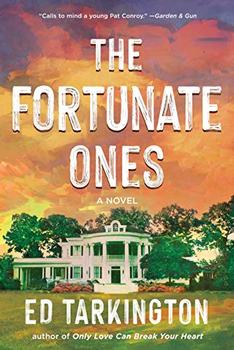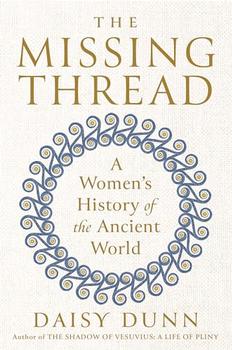Write your own review!
 Cathryn Conroy
This Is a Good Book but Not a Great One. It Could Have Been So Much More.
Cathryn Conroy
This Is a Good Book but Not a Great One. It Could Have Been So Much More.
This is a good book — just not a great book. And that's a shame, because it could have been a lot more.
Written by Ed Tarkington, this is the story of Charlie Boykin, born in the 1960s to a 15-year-old mother whose family disowned her when she wouldn't go away quietly to have the baby and give him up for adoption. So at 15, she ran away from her South Carolina home to live with an aunt in Nashville. They live on the wrong side of the tracks in what some cities would call the projects. Charlie's mom, Bonnie, works as a cocktail waitress in a somewhat seedy bar. When Charlie is about to enter high school, the unbelievable happens. He is admitted as a scholarship student at Yeatman, an elite boys' school. His entire life suddenly changes. Charlie becomes such good friends with one of the Yeatman cliques led by Archer Creigh that he and his mom are invited to live in the carriage house of one of his friend's estates. He is not only lifted up into this rarefied world where money is no object, but also he is fully adopted into it. However, all is not as it seems, and as Charlie eventually discerns the truth behind all the largesse that has been given to him, his world collapses.
This is the biggest problem with the book: It has the kind of slow-moving plot that absolutely depends on characterization to be fully realized. But the characters are all one-dimensional with their never-changing personality characteristics defined early on in the book. And so plot flops. Even as devastating family secrets are revealed, the reactions tend to be farcical. Either the author overplays his hand or shockingly ignores the obvious. It is very disappointing!
Oh, it could have been so much more.
Darra W. (Mendocino, CA)
A mixed bag ... and missed opportunity
Perhaps Tarkington's novel would have worked better as a series of interconnected short stories, a la Elizabeth Strout's "Olive Kitteridge." Instead, this cautionary tale reads as a rather bloated, disconnected, and at times highly unlikely single narrative that fails to live up to its promising prologue. That's not to say it's without merit given its crisp dialog, timely themes, and intriguing cast of intrinsically flawed characters. Instead, it's a missed opportunity to tell a basically familiar story in a fresh new way.
Analise A. (Richmond, VA)
Interesting, but didn't fully satisfy.
"The Fortunate Ones" interested me with the themes of Southern cities, privilege, and complicated relationships. While I found the characters interesting, I felt that their choices were at times unbelievable and pulled on too many different threads, without delivering enough substance. The writing is clear, and I felt invested enough to finish the story to see where the characters ended up. This novel hints at some interesting themes, including sexuality, race, and private school culture, but I didn't feel like any of these were thoroughly explored. I would recommend this book if you want an easy read, have an interest in the intersection of Nashville/southern cities and privilege in a coming of age novel.
Marcia H. (Sarasota, FL)
The Fortunate Ones by Ed Tarkington
While I was happy to read The Fortunate Ones by Ed Tarkington, I found the story disappointing. As the story went on, I found the choices the main character makes disappointing. He is completely taken in by life among the wealthy and his wealthy upperclassman friend, Archer. After the suggestion of a homosexual encounter between the two, I kind of lost sympathy for Charlie. The only time he shows strength of character is when he runs away but then he comes back. I was glad to find out his absent father knew about him. I would be interested to hear what others say but this book is not one I would recommend.
Kathrin C. (Corona, CA)
Seeing What We Want to See
I enjoyed the first half of the novel, "Princes in the Tower", where Charlie Boykin narrates his own coming-of-age story. Through the connections and designs of his single working mother, he is transported from a poor neighborhood in East Nashville and dropped off into a private school world for offspring of the Tennessee rich. And friendships do develop with his assigned big brother Arch Creigh and girlfriend Vanessa Haltom. Charlie begins to learn and embrace upper class ways of the world and finds that "most of the time, we see what we want to see", so he can let the rest of reality conveniently fall out of sight. Until it comes back and bites him. All this sets the stage for part two, "Vaulting Ambition" that follows their adult years forward. And here my interest flagged a bit, as characters seemed to become more like chess pieces moving around the plot.
So final thoughts – The Fortunate Ones is an easy to read novel and the writing is above average. But I think the characters could use some more in-depth development that would rationalize their later sudden and manic movements that challenged believability.
Eileen F. (Media, PA)
Class and secrets
Class, race and homosexuality are some of the topics that come up in this book. This book would appeal to book groups because of the many crises that occur in this story. Southerners may recognize many situations in The Fortunate Ones.
Reid B. (Seattle, WA)
Rich white people in love
Charlie Boykin lives on the wrong side of the tracks or, at least, in the wrong part of Nashville. His mother fled her affluent life at 15 because she was pregnant with Charlie and defiantly unwilling to part with him. For over a decade she lived a hand-to-mouth life, raising Charlie, working as a waitress, living with her cousin, an aspiring singer who never moves beyond the local bar scene.
Then Charlie lucks out. His mother dresses them both in their Sunday best and takes her son to an interview at the exclusive private boys' school, Yeatman. Much to his surprise, he is admitted to the school on full scholarship. Better yet, he is paired with Archer Creigh, a cultured young man with the pedigree of Nashville royalty. Arch is kind and benevolent, and takes Charlie under his wing. He also introduces him into the Haltom family, a nouveau riche addition to the Belle Meade community. Jim Haltom is his benefactor, for reasons that Charlie does not interrogate too closely, nor discover until many years later. But Charlie thinks mostly and with great pleasure of the reprieve he has been given. With great relief he falls under the spell of all this genteel wealth. Of course, all of it's too good to be true (it wouldn't be much of a novel if it were otherwise, would it?) Soon Charlie begins to see the ugly underside of all this plenty and gets caught up in the emotional maelstrom of involvement with this crowd.
I suppose I am damning this book with faint praise when I say it is perfectly competently written, but that seems to me the most accurate description of what this book is: a competent story, efficiently if ploddingly written, with only a few implausibilities (the Army? Really?). But in the final analysis it really doesn't seem to have much to say. We come to care only mildly for these folks and what they are going through; without emotional investment in their plight, though the book never really flags, it never excites, either, never challenges or thrills us.
I have also tired of the trials and tribulations of rich, white people. Yes, there are nods here and there in this book to the plight of those who aren't either of these things, but they are just that: nods rather than an actual exploration of what it means to be black or poor or (God help you) both in the Nashville of the late 20th and early 21st century. Perhaps I am just unfeeling (rich people, after all, grieve and fail and die, just like the rest of us), but probably not. Particularly in this moment of our country's history, it seems singularly tone deaf to publish a book about white privilege and expect us to sympathize with the privileged white people. Don't get me wrong, that's not the only reason I couldn't really relate to this book; it's just not that richly plotted and the conflicts raised are fairly pedestrian. But it certainly doesn't help that we have to climb that racial and class hill in order to care.




